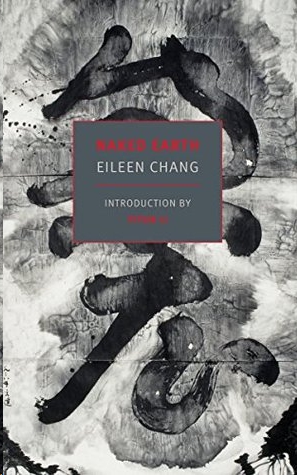
Naked Earth
کتاب های مرتبط
- اطلاعات
- نقد و بررسی
- دیدگاه کاربران
نقد و بررسی

January 26, 2015
An unrelenting portrait of love and loss in Maoist China, Chang’s novel was originally commissioned in the 1950s as anticommunist propaganda by the U.S. Information Service. Shanghai-born Chang (Love in a Fallen City) writes with a survivor’s clear-eyed frankness about how Mao’s policies punished China’s people, leaving no one, even those in positions of power, untouched. The narrative tracks Liu Ch’uen and Su Nan, idealistic students who confront the realities of Chinese Communism when they are deployed to the countryside with the Land Reform Workers Corps. As they discover how its implementation falls short of its original conception, they bond and fall in love. Chang follows Liu to Shanghai when he is promoted, an opportunity to expose the Party’s bureaucratic failings, turncoat allegiances, and inhumane toll on urban communities. Chang does not shy away from gritty details, including executions. She writes, “The whole country lay stretched out like an open palm, ready to close around any one person at any minute.” Amid such harrowing descriptions, Chang develops a tragic wartime romance that leaves readers with a painfully clear picture of just how deeply Mao’s reign scarred her native country.

January 15, 2015
Love is tested against revolutionary intrigue during China's Cultural Revolution. In this sweeping 1956 novel, one of two Chang was commissioned to write by the United States Information Service, two earnest young students meet, quietly fall for each other, and are then separated by the currents fracturing their society as Mao Zedong's government looks to fundamentally alter Chinese culture. Chang, who was born in Shanghai in 1920 and moved to the U.S. in 1955, finds tension in both revolutionary schisms and everyday betrayals. In the novel, she balances the pastoral and the unsavory: Early on, for instance, she juxtaposes cicadas chirping at dawn and sunlight tenderly lighting the walls of buildings with a less comforting scene: "[H]uman excrement dotted the ground near the walls." The scene is a small rural village, where Liu Ch'uen and Su Nan first meet. It's a landscape of idealism ridden with denunciations and paranoia: "It was whispered among the members of the Corps that Go Forward Pao and the chairman of the Farmers' Association were smuggling large quantities of rice and flour out of the granary." At times, the collapse of idealism into infighting feels predictable; Liu and Su Nan are appropriately star-crossed, but the broad strokes of the plot can feel heavy-handed. In its quieter and more humorous moments, however, the novel shines: Liu tracking the increasing handsomeness of cinematic depictions of Stalin over time; gender-neutral revolutionary clothing proving handy after two characters must present themselves quickly after a tryst. And it's telling that this novel ends on a personal note rather than on a political one. Chang's novel can be less than subtle at times, but its description of small compromises and grand despair are both affecting and compelling.
COPYRIGHT(2015) Kirkus Reviews, ALL RIGHTS RESERVED.

May 1, 2015
After bringing Chang's short story collection, Love in a Fallen City (2006), to an English audience for the first time, New York Review is now bringing out this novel, written in the 1950s, after Chang immigrated to the U.S. Commissioned by the U.S. Information Service, the story centers around a young couple who find love in the early days of the Communist Revolution. Liu Ch'uen and Su Nan are recent university graduates when they meet on a trip organized by the Cultural Bureau to bring students to the countryside to help the peasants overthrow supposedly wealthy landowners. Liu and Su grow close, only to be separated when Liu is sent to Shanghai with the organizer who led their mission. Once there, Liu finds himself stifled by the work and falls into an affair with an older woman that threatens his relationship with Su, and his freedom. The only thing cheap in this country is human lives, Liu observes in this often brutal, powerful look at the cost the Maoist regime exacted on even those who perpetuated it.(Reprinted with permission of Booklist, copyright 2015, American Library Association.)

























دیدگاه کاربران